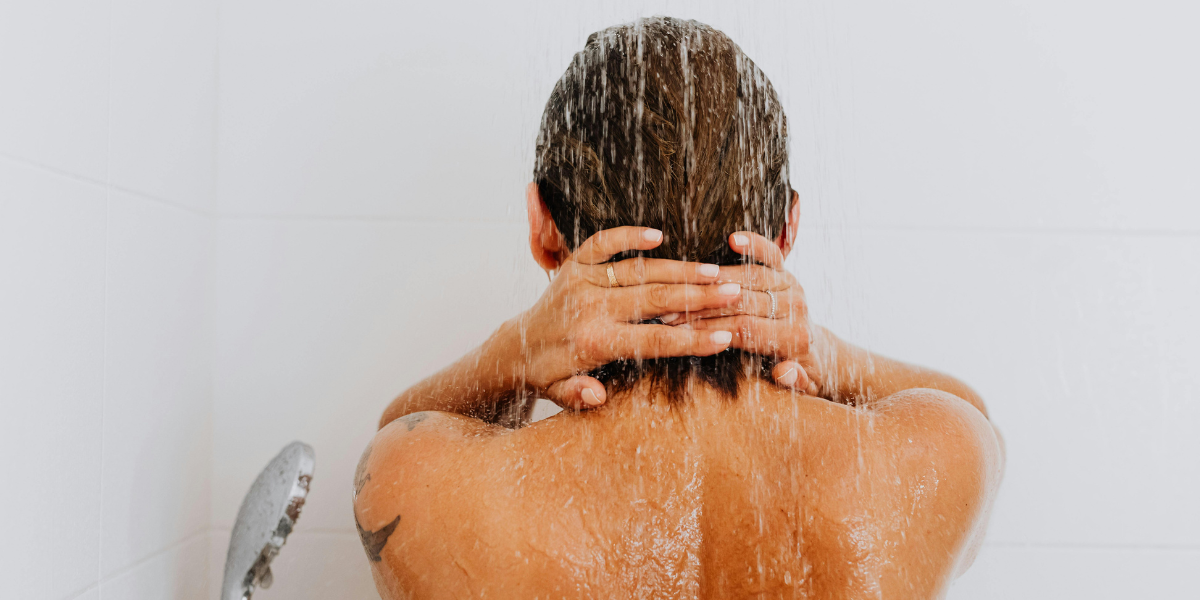Is Your Shower Water Hurting Your Skin? Exploring the Impact of Hard vs. Soft Water

If you’ve ever jet-setted to a new location, you’ve likely experienced different types of water – whether in pools, oceans, or showers and sinks! In Australia, for example, you’ll find softer water in Victoria and Tasmania, while harder water is common in Western Australia and South Australia. So, no matter where you are in the world, there will be variations in water hardness and softness.
While we may not be geologists, we’ve researched this topic extensively to bring you the essentials. In the words of Billie Eilish’s latest album: it’s time to Hit (You All Things) Hard and Soft water!
What is hard water and soft water?
Hard water is found in many countries, particularly those with limestone and chalk formations in their geology. It refers to water that has heaps of minerals (mainly calcium and magnesium).
For any science/maths geeks out there who wanna crunch the numbers, here’s a straightforward breakdown of water hardness:
- Soft water: Less than 60 mg/l of minerals.
- Moderately hard water: 60 to 120 mg/l.
- Hard water: 120 to 200 mg/l.
- Very hard water: More than 200 mg/l.
Don’t do maths? We hear ya. Basically, if you hear someone talking about hard water, they’re referring to water that has a higher mineral content than normal. This makes soft water its polar opposite. When rain falls, it starts as soft water because it hasn’t picked up any minerals yet. But as this water flows over rocks and soil, it dissolves minerals and hardens. Because it has fewer minerals, soft water doesn’t create scale or buildup in pipes and appliances, and it can also make soap lather better. (So, you can see why soft water is often the fan favourite.)
How does hard water affect your skin?
Hard water can have several effects on your skin. The minerals in hard water can build up, disrupting the skin moisture barrier, which can make it harder for your skin to retain moisture. This can lead to increased dryness, irritation and itching. Hard water may also contribute to skin conditions like eczema and mild acne-prone skin, as the mineral deposits can exacerbate these issues and make skin feel more sensitive.
How soft water impacts your skin
Soft water can have a positive impact on your skin. With its low mineral content, soft water helps keep the skin hydrated and can increase smoothness, allowing for better moisture retention. Because it doesn’t leave behind mineral deposits, soft water is less likely to irritate compared to hard water, making it gentler on sensitive skin. Overall, using soft water can promote healthier, more comfortable skin by minimising dryness and irritation. (Ummm, soft water? We love her!)
Signs that your water may be affecting your skin
Feel like your skin issues may be due to the water in your region? Here are some tell-tale signs to watch out for:
Dryness: This may present as persistent dryness or tightness after washing.
Irritation: Redness, stinging or a burning sensation.
Itching: Frequent itching or discomfort, especially after bathing.
Rashes: Development of unexplained rashes or flakiness.
Breakouts: Increased acne or blemishes, particularly on the face.
Eczema Flare-ups: Worsening of eczema symptoms or new outbreaks.
Sensitivity: Increased sensitivity to skincare products or environmental factors.
Tips for managing hard water skin issues
- Consider installing water softeners or filters to reduce mineral content in your water.
- Use pH-balanced or hydrating skincare products to provide extra hydration. This can help to counteract the drying effects of hard water.
- Limit hot showers and avoid showering or bathing too often.
Now that you know the difference between hard water and soft water, it’s time to treat your skin to something special (*ahem* – get nice and sudsy with Sundae’s Whipped Shower Foams. Mmm.).
Happy Sundae x
Shower or bath, kick-back with your new fave shower foams:
👉 Honey Honey Whipped Shower Foam
👉🏻 Pomegranate Fizz Whipped Shower Foam
👉🏽 Green Tea Exfoliating Body Wash
Written By: Lizzie Waley (Sundae Co-Founder & Body Care Enthusiast) | LinkedIn
Fact Checked: Charnnie Frimpong (Sundae Content Marketing Manager) | Linkedin

